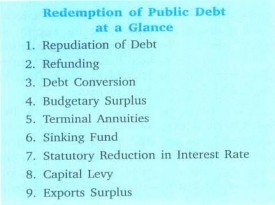4.4.3. Debt vs Inflation
One of the main criticisms of deficits is that they are inflationary. This is because when government increases spending or cuts taxes, aggregate demand increases. Firms may not be able to produce higher quantities that are being demanded at the on-going prices. Prices will, therefore, have to rise. However, if there are unutilised resources, output is held back by lack of demand. If a high fiscal deficit is accompanied by higher demand and greater output it need not be inflationary.
It has been argued that there is a decrease in investment due to a reduction in the amount of savings available to the private sector. This is because if the government decides to borrow from private citizens by issuing bonds to finance its deficits, these bonds will compete with corporate bonds and other financial instruments for the available supply of funds. If some private savers decide to buy bonds, the funds remaining to be invested in private hands will be smaller. Thus, some private borrowers will get crowded out of the financial markets as the government claims an increasing share of the economy’s total savings. However the economy’s flow of savings is not really fixed unless it is assumed that income cannot be augmented. If government deficits succeed in their goal of raising production, there will be more income and, therefore, more saving. In this case, both government and industry can borrow more.

If the government invests in infrastructure, future generations may be better off, provided the return on such investments is greater than the rate of interest. The actual debt could be paid off by the growth in output. The debt should not then be considered burdensome. The growth in debt will have to be judged by the growth of the economy as a whole.
Note: Larger deficits do not always signify a more expansionary fiscal policy. The same fiscal measures can give rise to a large or small
deficit, depending on the state of the economy. For example, if an economy experiences a recession and GDP falls, tax revenues fall because firms and households pay lower taxes when they earn less. This means that the deficit increases in a recession and falls in a boom, even with no change in fiscal policy.
